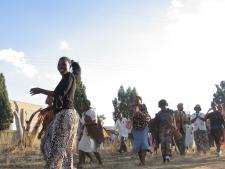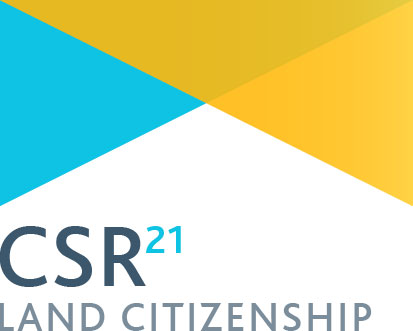
Kalahari Bushmen still hanging on despite the depredations of governments and miners
There was a film famous in the early 1980s in the white communities of Southern Africa called The Gods Must Be Crazy.
It told the story of a hapless white South African called Steyn and his inept attempts to woo a beautiful teacher, also white, teaching schoolchildren out in the bush in Botswana.
A notable subplot though involved a Kalahari Bushman named Xi who hails from a tribe with no knowledge of the world outside its own immediate environment.
The film wouldn’t pass muster with the politically correct brigade now, but nonetheless its treatment of the Bushmen is surprisingly sensitive and actually stands the test of time fairly well.
The key point is that the Bushmen live outside of the mores of Western civilisation, and successfully so.
They live off the land of the Central Kalahari and have done so for centuries upon centuries. In The Gods Must Be Crazy, the arrival of a coca cola bottle dropped out of a plane causes severe disruption as the Bushmen struggle to make use of it and then find themselves divided and competing for it.
It is resolved by the community that Xi should thrust the bottle off the ends of the earth and have done with it. This he successfully does after various adventures involving Steyn, the woman, terrorists and the dramatic rescue of hostage children.
So far so good.
The reality for Bushmen these days is a little less prosaic.
The disruption comes not from stray flying coca cola bottles but from the diamond miners encroaching on the Kalahari desert with the full blessing of the government of Botswana.
Because the government of Botswana does not comprise Bushmen. Indeed, the idea that Bushmen could staff and run an fully functioning modern state is anathema to their very culture. That is exactly what they are not about.
The trouble is that they then come under the nominal jurisdiction of someone else, and as Xi found at one stage in The Gods Must Be Crazy, this can have startlingly unpleasant consequences.
Xi is sentenced to jail for killing a goat that he wants to eat. And the Bushmen at large have also been under such sanction.
Even in spite of a landmark 2006 court ruling by a judge in Lobatse, Bushmen are still harassed for hunting game on their own ancestral land.
Indeed, until that 2006 ruling, the government was attempting to evict the Bushmen altogether from that land to allow the diamond miners to come in.
After all, Botswana is one of the premier destinations in the world for diamonds, and saved and reinvigorated the world’s premier diamond mining company, De Beers, when its old South African mines began to move towards their sell-by dates.
Indeed, in November the second largest gem-quality stone ever recovered was pulled out from ground not far from a Bushman settlement.
But that’s of no help to the Bushmen. The same 2006 ruling that formally allowed the Bushmen the right of abode and the right to hunt on the Central Kalahari also stated that the Botswana government was under no obligation to provide services to the Bushmen.
In effect, that means that whatever riches are pulled out of the ground, with or without the consent of the Bushmen, go into the pockets of the government and the mining companies.
Twas ever thus, you might say. But actually, as we highlight often on these pages on CSR21, most mining companies and governments are only too keen to share the wealth these days, in the interests of good government and good community relations.
The trouble here is that the very idea of good government is largely alien to the Bushmen. Indeed, what use have they for a government that uses the idea of conservation of the land they have lived on for generations as a stick to beat them with?
In 2014, a UN special representative condemned the government of Botswana for restricting the access of Bushmen to the Kalahari in the name of promoting eco-tourism and mining. These activities may make good sense as part of a modern economy integrated into wider global networks.
But they make no sense to the Bushmen. And probably never will.





